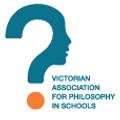Philosophy in Schools Readings

Ediz Dikmelik, 2024, Notes from the Field: Argument Mapping in Dialogue with Young Thinkers, Analytical Teaching & Philosophical Praxis, vol. 44, no. 1
Philosophy for/with Children (P4wC) is a pedagogical practice that aims to enhance thinking skills through group dialogue. One way it achieves this goal is by providing exposure to arguments. In a philosophical group dialogue, participants encounter, examine, or construct arguments. These arguments not only emerge spontaneously during discussions but are also integrated into specific activities, some of which draw from the history of philosophy.
Given the importance of arguments in cultivating thinking skills, teaching how to effectively engage with them becomes essential, if not a prerequisite, for fruitful philosophical group dialogues. Traditional ways of teaching logic, however, can be abstract and daunting for young learners. One way to help students in this regard is to think about how we represent arguments. In spoken discourse, when someone presents an argument, there isn't much room for creativity; it unfolds as a series of sentences spoken consecutively. However, when arguments are committed to writing, numerous representation methods come into play. They may be organized within paragraphs or presented as a list of sentences, each occupying a separate line. Argument maps or diagrams provide an alternative method. By providing a visual way to represent arguments, they offer a valuable tool to enhance philosophical group dialogues in P4wC.
